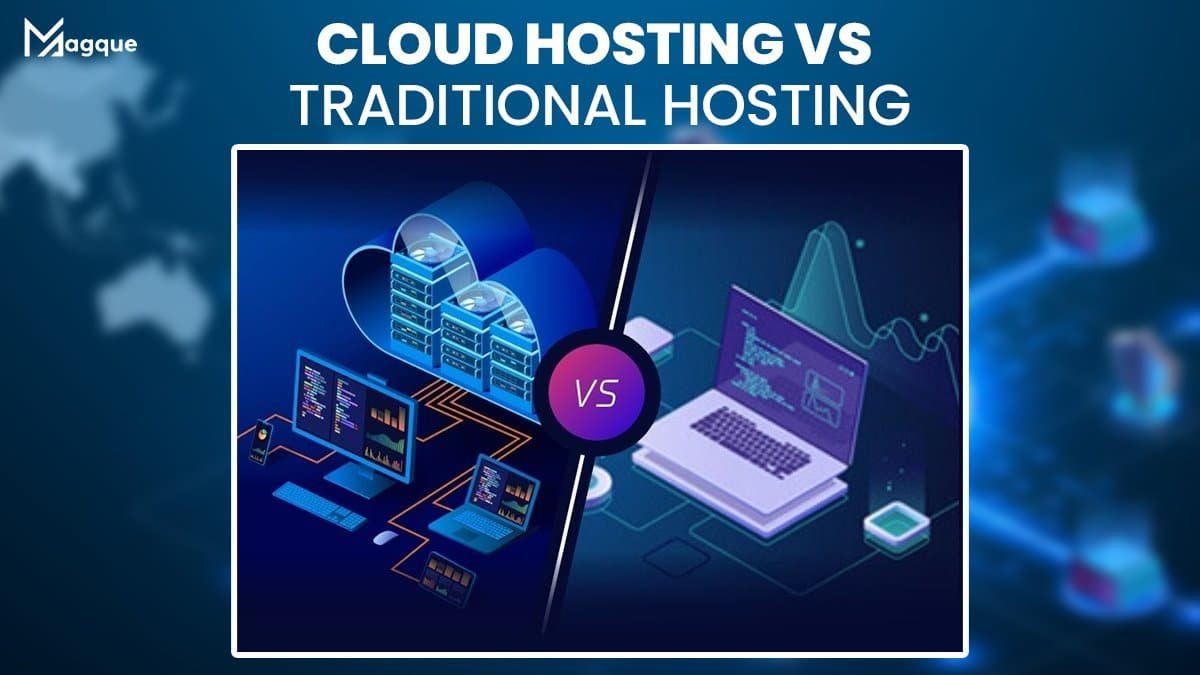Hey there, fellow digital nomads and website owners! So, you’re thinking about hosting? Let’s dive into the epic battle of Cloud Hosting vs Traditional Hosting. Picture this: you’re setting up shop in the vast digital landscape, but you need a place to call home for your website. That’s where Hosting comes in. But which one should you choose? Let’s break it down.
Cloud Hosting: The Maverick of the Digital Skies
Imagine your website floating effortlessly in the clouds, like a digital superhero. That’s cloud hosting for you. It’s like having your fleet of servers ready to adapt to whatever traffic spikes or thunderstorms come your way. With cloud hosting, you pay for what you use, making it super flexible and scalable. Need more space? No problem! It’s like renting a cloud condo – you can upgrade whenever you need more room to stretch your digital legs.
Traditional Hosting: The Reliable Old Friend
On the other hand, we have traditional Hosting, which is the steady rock in the stormy sea of the internet. Traditional Hosting is like owning a plot of land in the digital countryside. You’ve got your server dedicated solely to your website. It’s reliable, familiar, and has been around since the early days of the internet. You know precisely what you’re getting with traditional Hosting – no surprises, no frills, just good old-fashioned stability.
The Showdown: Which One Should You Choose?
Now, let’s get down to brass tacks. Which hosting option is right for you? Well, it depends on your needs and priorities.
- Budget: If you’re starting and want to keep costs down, cloud hosting might be the way to go. You only pay for what you use, so it’s perfect for small businesses or personal projects on a tight budget.
- Scalability: If you anticipate rapid growth or unpredictable traffic patterns, cloud hosting is your best bet. It can handle sudden surges in traffic without skipping a beat, ensuring a smooth user experience.
- Reliability: However, if you prioritize stability and reliability above all else, traditional Hosting might be faster for you. With dedicated resources, you won’t have to worry about other websites hogging your server’s bandwidth or resources.
Conclusion: Choose Your Digital Destiny
In the end, both cloud hosting and traditional Hosting have pros and cons. It all comes down to what you value most for your website. Are you a digital maverick, ready to soar through the clouds with flexible scalability? Or do you prefer the reliability and familiarity of traditional Hosting, like an old friend you can always count on? The choice is yours, dear website owner. Choose wisely, and may your digital journey be ever fruitful! And be sure to explore Magque, your go-to source for the latest and most intriguing updates in the realms of informative tips & reviews!
FAQs
Q1. What is the main difference between Cloud Hosting and Traditional Hosting?
Cloud Hosting relies on virtual servers hosted in the cloud, allowing for scalability and resource flexibility. On the other hand, Traditional Hosting involves a physical server dedicated solely to one website, offering stability but limited scalability.
Q2. Which hosting option is more cost-effective for small businesses or startups?
Cloud Hosting is generally more cost-effective for small businesses or startups because it operates on a pay-as-you-go model. You only pay for the resources you use, making it easier to manage costs. In contrast, Traditional Hosting typically involves fixed monthly fees regardless of usage.
Q3. How does scalability differ between Cloud Hosting and Traditional Hosting?
Cloud Hosting excels in scalability, allowing websites to easily handle sudden spikes in traffic by automatically scaling resources up or down as needed. Traditional Hosting, however, may require manual upgrades or additional hardware to accommodate increased traffic, making it less flexible in scaling.
Q4. Which hosting option offers better reliability and uptime?
Traditional Hosting often boasts higher reliability and uptime because resources are dedicated solely to one website, reducing the risk of performance issues caused by other websites sharing the same server. While generally reliable, Cloud Hosting may be susceptible to occasional downtime due to the shared nature of virtual servers.
Q5. How does data security compare between Cloud Hosting and Traditional Hosting?
Cloud and Traditional Hosting can offer robust security measures, but the approach differs slightly. Cloud Hosting providers typically implement advanced security features and protocols to protect data stored in the cloud. At the same time, Traditional Hosting relies on physical security measures to safeguard servers located in data centers. Ultimately, the level of security depends on the specific measures implemented by the hosting provider.
Read Also This:- Cloud Hosting Trends for High Traffic Sites













